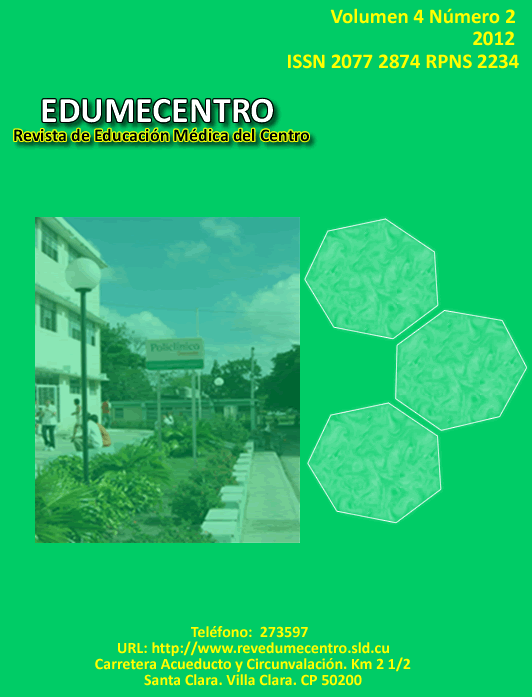The quantitative and qualitative paradigms in the knowledge of the medical sciences with an epistemological-philosophical approach
Keywords:
Paradigms, knowledge, medical sciences.Abstract
The social studies of sciences developed during the XXs century have shown the social nature of the scientific practice, as well as a compromising attitude towards values, which are priorities and proper interests of the structure and the social agents. One of the principal tasks of a scientist is to make a very good selection of the project method, in such a way that the empiric facts become an adequate source of epistemic foundation of the new knowledge of the research work. The public health branch forms its own human resources, either as technicians or professionals, who carry out research works in different areas such as: Research works in the health systems and services, clinical and epidemiological research works, etc, which have their own characteristics. The objective of this work is to characterize the quantitative and qualitative paradigms in the medical sciences according to the epistemological-philosophical approach.Downloads
Download data is not yet available.
Published
2013-02-18
How to Cite
1.
Coello Valdés E, Blanco Balbeito N, Reyes Oramas Y. The quantitative and qualitative paradigms in the knowledge of the medical sciences with an epistemological-philosophical approach. EDUMEC [Internet]. 2013 Feb. 18 [cited 2026 Feb. 14];4(2):137-46. Available from: https://revedumecentro.sld.cu/index.php/edumc/article/view/180
Issue
Section
ARTÍCULO DE REVISIÓN
License
Los autores que publican en esta revista están de acuerdo con los siguientes términos:- Los autores/as conservarán sus derechos de autor y ceden a la revista el derecho de primera publicación de su obra, el cuál estará simultáneamente sujeto a una Licencia Creative Commons Reconocimiento-NoComercial-CompartirIgual 4.0 Internacional (CC BY-NC-SA 4.0) que permite a terceros compartir la obra siempre que se indique su autor y su primera publicación esta revista.
- Los autores pueden establecer por separado acuerdos adicionales para la distribución no exclusiva de la versión de la obra publicada en la revista (por ejemplo, situarlo en un repositorio institucional o publicarlo en un libro), con un reconocimiento de su publicación inicial en esta revista.
- Se permite y se anima a los autores a difundir sus trabajos electrónicamente (por ejemplo, en repositorios institucionales o en su propio sitio web) antes y durante el proceso de envío, ya que puede dar lugar a intercambios productivos, así como a una citación más temprana y mayor de los trabajos publicados (Véase The Effect of Open Access) (en inglés).










